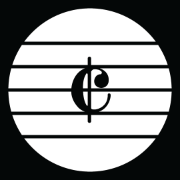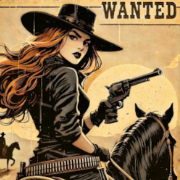Leaderboard
Popular Content
Showing content with the highest reputation on 03/25/2023 in all areas
-
Hi everyone! I have previously posted the second movement of my second Piano Sonata here: Now I am posting the first movement of the work! Here are the pdf and the mp3: Piano Sonata no.2 in A-flat Major First Movement.pdf Piano Sonata no.2 First Movement.mp3 I've also included the YT video here: I didn't introduce the inspiration of this sonata in my post in the second movement to have it here. Piano Sonata no.2 in A-flat major (2015) is composed right after the completion of the first Piano Sonata. It's the quickest composition at all since I had only used 3 weeks to finish the first draft of it.(It's very quick in my standard since well, I can use 6 years to compose my clarinet quintet...) I adopt a freer approach here to contrast with the first Piano Sonata which is very cohesive. Here I really just write what I want and this may result in less tight structure of the overall work. But it's definitely more akin to my emotion and feeling here! I only use 2 days to finish the first draft of this movement in 6-7 May 2015. It begins in a Schubertian manner and several episodes in it, stimulating the later movements and transformed into a Beethovanian one, akin to his op.110 in the same key. I really love how serene this movement begins and motivational at the end! The overall form of the piece can be considered as follow: B.1-32 (00:00-01:18): Main theme, serene and Schubertian in A flat major. Backbone of the piece B.33-81 (01:19-03:16): Secondary theme begins in f minor but confirms the A flat major. Inspire 2nd movement. B.82-98 (03:17-04:00): Doloroso in C sharp minor my favourite key! End of the first part. Inspire 4th movement. B.99-135 (04:01-05:00): Struggling to create power in a Beethovanian manner. B.136-159 (05:01-05:42) Reprise of the opening theme but in Beethovaian manner especially with influence of his op.110 in the same key!!(My favourite Beethovan Sonata too!) B.160-183 (05:43-06:25): Crystallization of the opening theme? Inspire fifth movement esp. its coda. B.184-194 (06:26-06:57): Affirmation of the opening theme though weakened at the end to pave the way to the denial in the second movement. I am very happy to have composed this sonata as I feel like I am free flowing during the process. I also love how the emotions flow within it whether it's serene, hopeful, tragic, agitated or transfigured. I just ignore all those parallel 5ths and 8ves since the sound is great. It may suffer from the lack of coherence though especially in the first movement, but it helps inspire the later movements with the episodes so I am very grateful I make this! The recoding is made in 18/03/2023. There are two obvious slips in 04:06 and 04:12. But the rest of the recording is quite beautiful and faithful to the music so I retain it. Hope you enjoy this as well and thanks for listening!!! P.S The post for the third movement is attached here: The post for the fourth movement is attached here: Henry2 points
-
Hello there Here's the fifth prelude in season 1 of my epic (lol) miniseries of piano pieces. The main idea for this work was to depict an evil yet humorous character, the nefarious Kefka Palazzo. Hope you all enjoy, this was a fun one to write.1 point
-
Cool thanks! I think that only works for usernames... you know too much from my anonymity 😄1 point
-
ooh, I like these suggestions. I was a bit worried about tempo and playability, since I'm trying to keep these on the easier side, but I think notating 100-136 for tempo would be cool. Also, I like the giusto tip. Going to update the score, thanks Henry!1 point
-
Hey Vince, That's a real funny one. Those off beats, tone clashes, unexpected haromnic progression all creates the light hearted mood. It definitely reminds me some of Mendelssohn's Rondo Capriccioso in E major. I particularly like b.36 where you split you opening theme to a motive. The acsending shape of the opening theme can be easily used to create clinax which you use that successfully! I also love the extra breath in b.44 as it's funny there. I myself may want the tempo to be faster to reflect the scherzando feeling more . I may go up to 136 per crotchet. Will "giusto" better than non-rubato? Since giusto means strict tempo. Thanks for sharing as always Vince! Henry1 point
-
There is a Celesta, but the majority of the bell-timbre melody is played by a music box No, actually I don't think I've heard heard that arrangement and I've played through the game a couple of times. The main theme of the game is normally orchestrated when you play the game. It is also hummed and whistled by Luigi throughout the game. Not sure, but to me it sounds darker with the D note, so I'd keep it all the same. You're welcome! Thanks for listening!1 point
-
Hey Vince, I am so glad you love it! Though still Beethovanian I think I do have my voice here since I don't overthink too much in this sonata, thus more directly showing my real feeling here. You definitely should try playing your pieces and record them! I play them myself since I don't want my pieces to go unnoticed or altered by the computer rendition. Haha thanks! It does unconsciously build up the main theme of the 2nd movement! I love that very much. You will find much more of that in the 4th movement, my favourite of the sonata, which is ofc in C sharp minor! I love the agitation too and find the build up abrupt. But I also want to keep the doloroso seld contained and static (as it's also static in the 4th mov), so I just keep it this way. It becomes quite like Bee's op.110, sonata no.31 here though. Actually only you point this out! I have never considered the dolcissimo similar to thr 2nd mov but now it looks quite similar! That's quite beautiful here but it will turn to something magical in the coda of the 5th mov. I guess. Thanks so much for your kind words Vince. I hope I can have the entire sonata too, even I don't even start practicing the 5th mov at all! Henry1 point
-
Hi @Carl Koh Wei Hao, Yeah I thinl it's quite Schubertian opening and I love that! Yeah I quite like these two places too! I think you definitely have the ability to write one and play one! Thanks for listening and your compliment! Henry1 point
-
Hi guys, Thank you all for your comments! I have a real busy day! Peter, thank you for your comment and that beautiful badge! I like that beginning chorale too, but I don't think it's joyous😅! For me it's contemplative and lyrical. Yeah I like that chord progression by using a dom. 7th reinterpreted as German sixth too! I don't go exact here since I want to have some pacing as Vince noted to more expressively present the music here rather than in exact note value. Well actually in the first draft bar 99 is with 16th notes but I am not satisfied with the lack of motion it creates, thus I change it to a 16th triplets and later 32nd notes. I actually don't think it's break-neck here since in my concept I don't have to stay with the opening Andante tempo here with the synchronization in heart. I would have the theme move to a more agitated and motivated manner here rather than staying in the serene mood. At least in my conception I never do things for the sake of virtuosity itself since it's uselss without content and soul in it. And it doesn't appear virtuosic (even with the badge) for me! It's just a little bit tired for the LH after b.99, lol! Once again thanks for your review Peter! I greatly appreciate that and love how honest you are! Henry1 point
-
What an impressive piece and a fantastic performance! I like this work very much, and it reminds me of Schubert's style just by listening to the beginning of the music. The modulation from A minor to A-flat major with the German Sixth in bars 48-49 is brilliant, and the development in bars 123-135 is well executed. I have never tried writing a piano sonata for myself, as this task surely needs perseverance and dedication. Great job!1 point
-
I love this. I've actually been going through a bunch of Beethoven sonatas recently, so this is right up my alley. The style, of course, is what I mean, not your voice. Although drenched in your heroes, your voice is your own. First of all, congrats on performing this one. I know you mentioned some mistakes here and there, but who cares. You play beautifully. I really enjoyed the character you gave this in your playing. Your sense of rubato really made the music shine, something no computer could have recreated. As I toil at my computer rendering piano sound samples, your music reminds me that I should just practice more. You just get so much more out of your music with your performance. The subtle changing of pace in the chorale sections, or the lovely rubato you give to the dolcissimo (which by the way, you can play lightly!), all make this recording wonderful to the handful of times I've listened to it by now. You should be proud of your playing, and any imperfections you come across can be fuel for you to continue your studies at the instrument you already play so well. I like how clear and defined your sections are, which I'm guessing is from how well you give cadence to your themes and phrases. I'll mention some favorite parts of mine: -The chords at bar 17 and 25, along with the pesante minor sections were very nice. I especially love the second theme, it's striking how much I was able to feel the emotions from building up the A theme into it. Well done! -the con delore section was awesome, and I really liked the minor 9th created in bar 90 -I really liked the fast movement in the left hand at bar 99. Very powerful stuff. One thing that I would have done differently is maybe built up to those faster passages a little more. For instance, in the con delore section, I would have put a little more movement in it with eighths then possible sixteenths instead of keeping that stricter chorale structure. Maybe it could have led into it a bit smoother? Something to consider for the future as this piece is done already! -AND, I really liked how you kept all of that fast movement to go back into the A theme -I thought the dolcissimo section was really cool. At first I thought it was out of place, but it was a great way to give your piece a coda AND have a transition into a similar style in your second movement. I listened to both movements together, and I feel like this is a great start of a beautiful sonata. I think a big strength in your music is your ability to make everything connected and coherent. There's no question Beethoven's thematic unity has rubbed off on you, but you were able to create something of your own despite heavy influence. Your sound in this piece is something that I very much enjoy listening to for pleasure rather than with my analytic composer hat on, so I'm sure I'll be revisiting this one! Thanks for sharing Henry, I'm excited to hear it in it's entirety 😄1 point




